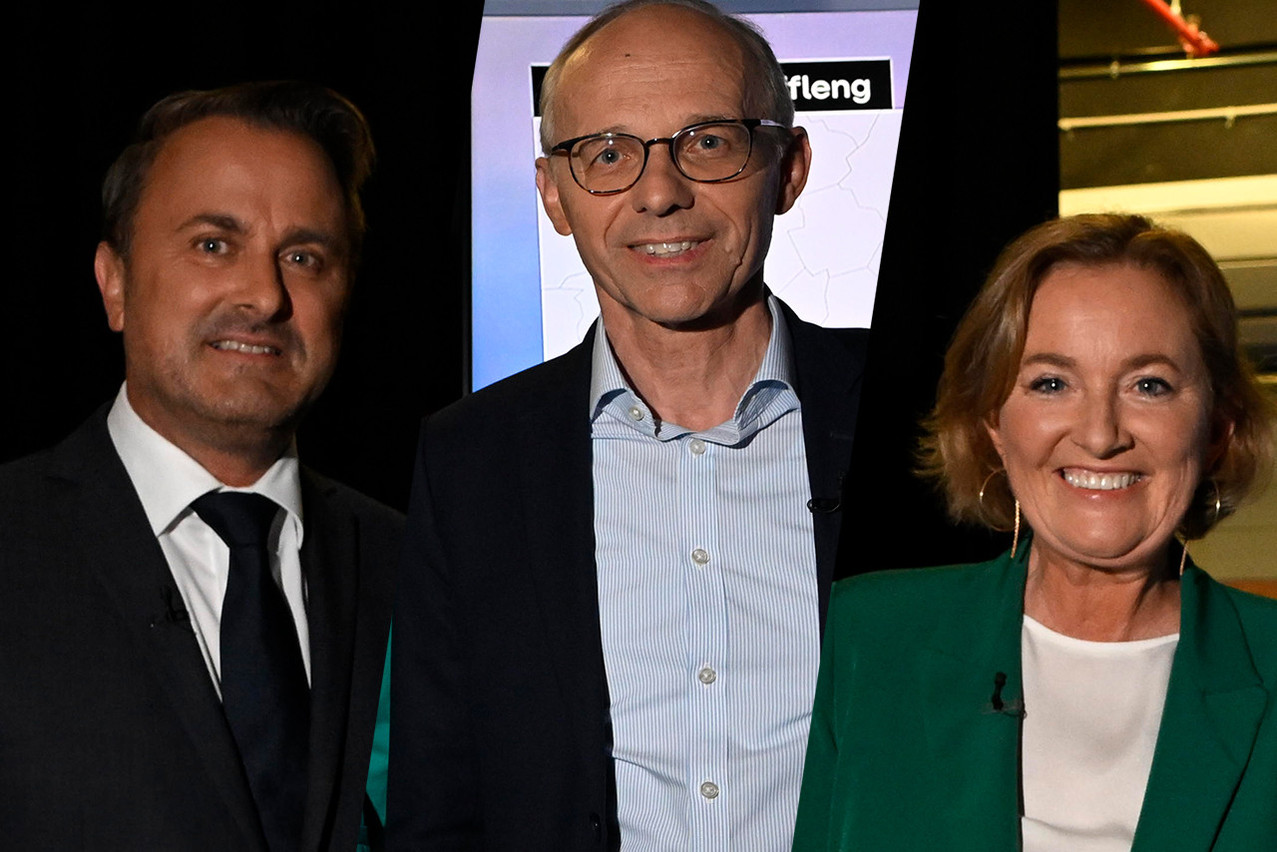In 2018, the Greens saved the coalition by winning three seats, while the LSAP lost three and the DP one. There will be no miracles in 2023. Dei Gréng has lost five seats, while its coalition allies experienced varying fortunes: strong growth for the DP, which gained two MPs to reach 14 mandates--“an unhoped-for result,” according to (DP) himself--and less growth for the LSAP, which gained one seat to reach eleven. It’s a disappointing score compared to the polls and the ambitions of the party led by (LSAP).
Fourteen (DP) plus eleven (LSAP) plus four (déi Gréng) equals twenty-nine. It’s not enough for a majority.
The CSV returns to the centre of the game
The CSV retains its 21 deputies in the chamber. This was not a foregone conclusion in June, when the Christian Social Party was down to 17 seats. (CSV) was a winning bet.
In Luxembourg City, the CSV tied with the DP (27.89% to 27.81%) and in Esch-sur-Alzette, the town where the Socialists are still recovering from their loss, the CSV narrowly edged out the Socialists (25.24% to 25.07%).
The CSV is once again the central party on the chessboard and can theoretically choose its partner for the next five years. A CSV-DP coalition would have 35 seats, a CSV-LSAP coalition 32. Whatever the colour of the next government, Frieden (CSV) has made it clear: “It will be to make a new kind of politics.” And he hopes that the CSV will lead it.
The Greens in disarray
Déi Gréng are the big losers of the election. This was to be expected in the aftermath of the local elections, during which they suffered a setback. The local elections have traditionally been favourable to the Greens. (déi Gréng) played down this setback. But the scale of the defeat was surprising. All the more so as climate change issues remain at the heart of the concerns of a majority of the population.
This setback comes as a surprise to many observers, who were generally expecting a setback, but not of this magnitude. The departures of , Roberto Traversini and Camille Gira, who were major vote-getters, certainly contributed to this fall at national level.
With four seats, the party obtained its worst score since 1999, when it won five seats. Déi Gréng lost its status as a party of government and was overtaken by the ADR.
Seven parties represented in the House
’s party (ADR) won five seats, one more than in 2018. ’s departure had no effect on the party, which is riding the right-wing populist wave sweeping Europe. Five seats will allow the party to have a fraction in parliament but will not allow it to participate in a coalition. DP, LSAP and CSV ruled out such an alliance throughout the campaign.
With three MPs, Piraten has underperformed. Although the party won one seat, it fell far short of ’s (Piraten) target of six MPs.
Déi Lénk achieved its target by saving its two seats.
As in 2018, seven parties will be represented in the chamber.
Roy Reding's Liberté-Fraïhett! (1.13% of the national vote) and Frank Engel’s Fokus (2.47% of the vote) missed out. Volt received 0.19% of the vote, déi Konservativ received 0.23% of the vote and the KPL received 0.64% of the vote.
This article was first published in French on . It has been translated and edited for Delano.
